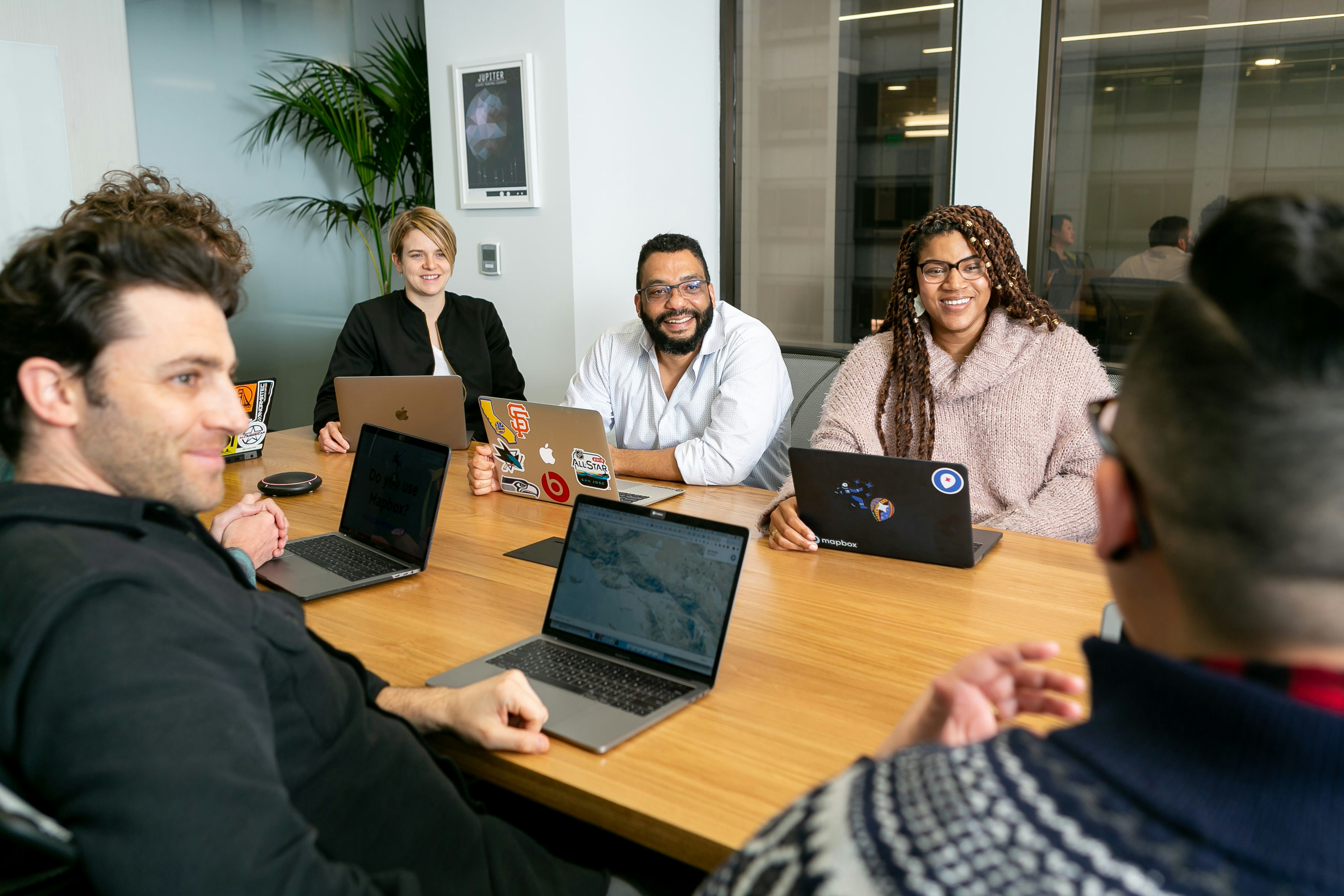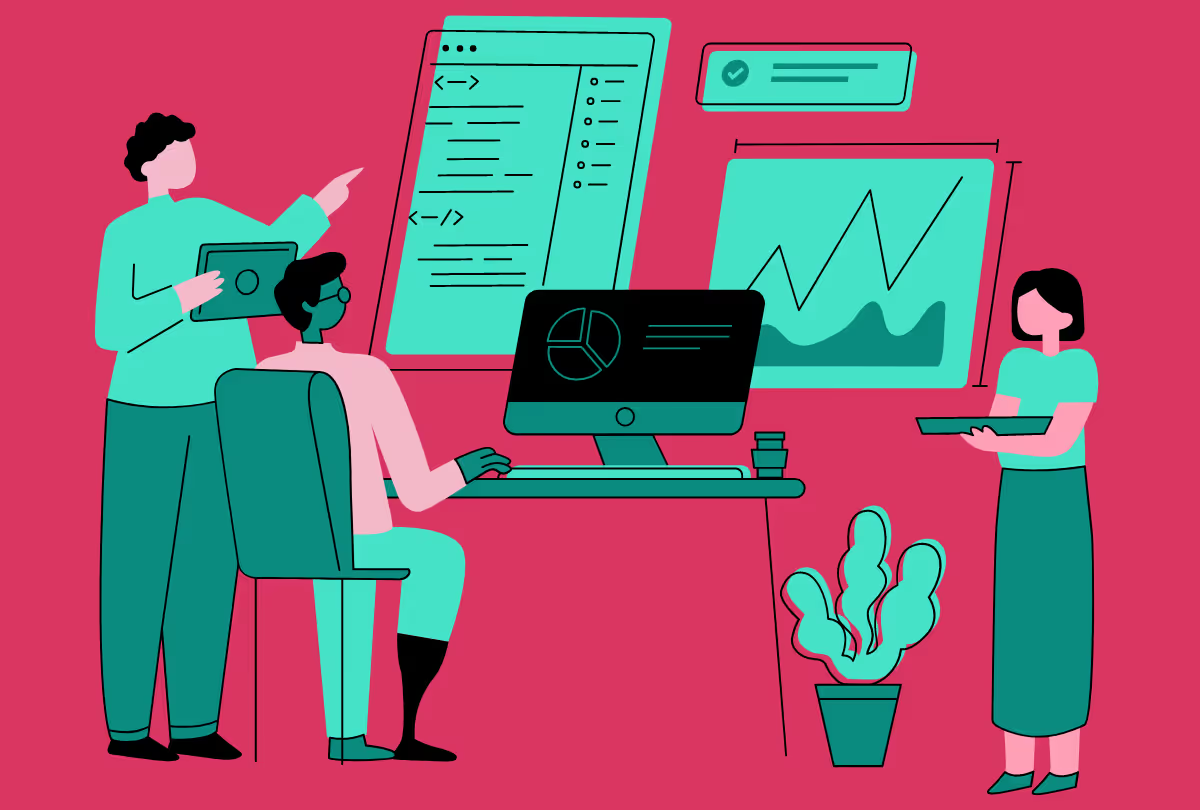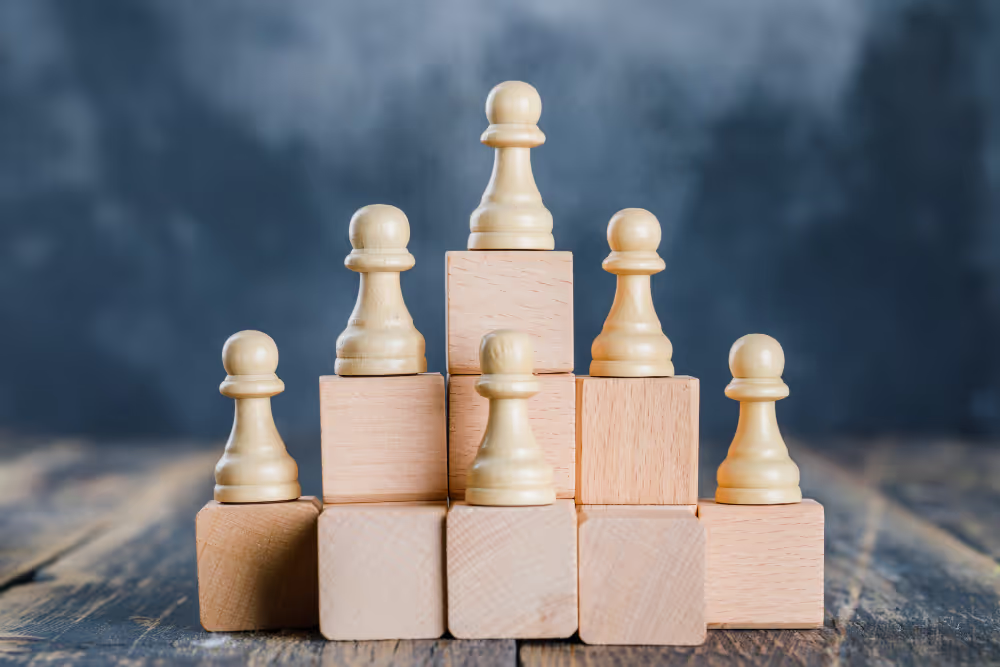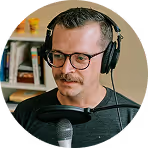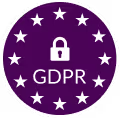Developing leadership skills is crucial for companies that want to reduce attrition and improve performance. To help leaders at every level develop the necessary skills they need to be great, finding leadership experts is essential. As we usher in the new year, it’s the perfect time to take stock of the coaches paving the way–so that your employees can become even stronger leaders.
No More Needle in a Haystack
There are thousands of coaches and mentors of all types out there, so how do you pick the best ones to serve the leaders in your organization? Of course, understanding the factors that indicate that you are dealing with a true professional can help.
But you also look at Growthspace’s global database, where experts must maintain very high client ratings, or else they are removed from the system. This in itself is a demonstration of effectiveness and quality. Whether you’re on the hunt for someone with experience coaching Fortune-500 companies, holders of doctorates, or perhaps has industry-specific experience–we’ve got you covered with 7 of Growthspace’s best leadership experts, profiled below. Each of them has scored highly in client feedback sessions, with a minimum score of 4.5/5.
- Alain Gingras (Canada)
Alain’s business and leadership coaching experience covers multiple continents, roles, and almost 40 years of excellence. He assists clients with a wide range of professional challenges including customer and organizational strategy, sales, executive relationships, and culture. Alain specializes in advising large enterprises in the manufacturing, technology, and software industries.
Alain works with senior executives through a holistic “presencing” process that allows his clients to realize profound transformations and new directions. Alain explains:
“In a world where our minds are assailed by an unprecedented number of concerns, executive presence has never been so difficult to achieve, impacting our capacity to maintain peak performance. Executive presence, AKA presencing, is the breakthrough driver for leaders to reach their ultimate performance and well-being at work and at home. It enables a client to unlock their true potential in many life areas. Presencing is THE driver behind a new era of leadership.”
Alain uses the technique of presencing to build essential leadership skills such as focus and attention, emotional and self-awareness, composure, and competence.
Alain holds an Integral Coaching certification from the ACC-ICF and an MBA in International Marketing (Laval University, Quebec, Canada). His work experience includes roles such as VP of Sales & Marketing; consulting for the United Nations; and President of Population Services International in Rwanda. He is also a Growthspace Integral & Executive Coach and received the Growthspace Top Expert Award (April 2023). Alain speaks English and French.
- Cindy Saunders (United States)
Cindy combines years of management and productivity coaching with extensive cross-industry experience in sectors like mining, aerospace, and finance to transform the professional and personal lives of her clients. Her clients’ goals are usually concentrated on improving their decision-making, communication, and confidence levels. Cindy’s abilities cover executive teamwork, prioritization, focus, and work/life balance.
During engagements, Cindy tends to work on three crucial areas:
- Emotional intelligence, which is developed through self-reflection and boosted by a coach through observation, identifying patterns, practicing positivity, and ingraining new insights
- Adaptability and resilience, where advanced emotional intelligence skills are applied to encourage flexibility and determination when facing challenges
- Strategic thinking, in which the leader’s vision is connected to the goals of the organization and then enhanced through various methods
Cindy explains why she emphasizes these areas:
“By mastering emotional intelligence, strategic thinking, and resilience, all other essential skills will naturally fall into place. The primary challenge in an engagement is often overcoming preconceived ideas and resistance to change. To address these, I establish an open and respectful environment where I am a trusted partner. Building trust helps preconceived ideas dissipate, allowing leaders to experience insights and results firsthand.”
To achieve these goals, Cindy has numerous coaching certifications and associations, including executive coaching certification from the World Coaching Institute; Senior Professional Certification from SHRM; and certification from HRCI as both a Senior and Global HR professional. These are in addition to HR positions at leading firms in a variety of industries.
Cindy believes that coaching engagements in 2024 will show considerable interest in well-being and emotional intelligence. Technology trends for the year will center on customized, continuous learning through online platforms.
- Dr. Shruti Jain (India)
Jain applies expansive education, coaching experiences, and work history to empower top executives in their pursuit of building a personal leadership style.
She is a Certified Global Coach (Global Coach Group) with over 1,000 hours of engagements that span functions including HR, sales, business development, and strategy. Jain puts an emphasis on relationship-building and an atmosphere that inspires her clients to express their professional objectives. Jain’s specialties include emotional intelligence, cultural understanding, situational and personal leadership styles, accountability, and learning from others.
“I use a mix of coaching and mentoring where I focus on building self-awareness while at the same time introducing globally benchmarked frameworks and models for improved behaviors and practices. It’s important to use well-defined goals with high-priority areas and clearly defined outcomes that impact overall growth as a leader. This method requires a great deal of real-life scenario planning and simulation tools coupled with a creative, simple approach. I also use various strategic retrospectives to define team goals and a long-term direction.
“Recently, I have started using a board game which helps leaders to sharpen their strategic thinking abilities and have a better understanding of cross-functional collaboration for making effective decisions. This helps in developing empathy for different functions, provides strategic insight, develops an agile mindset, and enables leaders to look at the bigger picture.”
Jain has a Ph.D. in Applied Business Economics from Dr B R Ambedkar University (New Delhi, India) and a Professional Diploma in International Business from AIMA. She speaks both English and Hindi. In 2024, Jain foresees continued use of digital learning; a focus on customized training programs for individuals, teams, and organizations; and an emphasis on strategic thinking plus agile and inclusive leadership.
- Noa Urbach (Israel)
Top executives who team up with Noa are cooperating with a leadership coach who has found success across the board. She has fifteen years of experience in strategy and business development, having led Google in building a $100 million business unit. Noa’s managerial roles include business development and strategy at firms ranging from Barclays Bank to VOOM and HiBob. Noa’s areas of focus cover hiring, leadership development, strategy and vision formulation, performance, and resilience.
For Noa, “The biggest challenge is to increase the leader’s awareness of the importance of a specific skill and to coerce him/her to invest in working on the skill. The way to overcome this challenge is by putting a spotlight on specific challenges coming from the lack of this skill and emphasizing the benefits of adopting a different behavior or acquiring new skills.
“The first stages of building any skill are self-awareness; analysis of the leader’s strengths and weaknesses; and establishing the value of the required skills and motivation for change.
Once there is a motivation for change, these skills can be developed through constructive feedback, scenario practice, and analysis of relevant work situations and dynamics.”Noa received her coaching certificate from the Adler Institute (Kfar Saba, Israel) and has an M.B.A. from INSEAD (Fontainebleau, France). She speaks English and Hebrew. According to Noa, the coming year will see empathetic leadership as a focus of coaching, along with leadership training and management methodologies to support this leadership style.
- Bill Lightfoot (United States)
Bill has coached across the world and across industries to bring top leaders the abilities that they need. His locations have included Tanzania, France, and Monaco in roles as diverse as technical sales and marketing, operations, and senior leadership. He can coach in professional topics ranging from dealing with ambiguity, creating influence, building trust, developing a career, and thinking strategically. Bill specializes in the IT industry.
According to Bill, “Because each person is starting in their own unique place, I will often spend most of my time initially asking questions, and listening – a lot. I will ask them to describe the values that they believe are important for leaders, and how those apply to their leadership style. This helps us to identify a person’s strengths and also the values where they want to focus. The greater a person’s self-awareness, the further we can go in our work together.”
Once this self-awareness is established, Bill might use one of several methods for the development of essential leadership skills such as emotional intelligence, empathy, active listening, and confidence. These methods include the 5 Whys, the Web of Life, the Sirolli System, and the productivity/values matrix.
Bill’s professional history includes work for Schneider Electric, the Eaton Corporation, and Southern New Hampshire University. He has coaching certifications from the ICF, ACMP, and Center for Executive Coaching. Bill holds a B.Sc. in Electrical Engineering (Bucknell University), an M.B.A. (Kenan-Flagler), and a Ph.D. in Organization & Management (Capella University).
Bill believes that soon, the top challenges for leaders will include managing cooperation between people and machines, establishing collaborative leadership through a distributed and decentralized company structure, and a greater focus on alignment between employee vs. organizational needs.
- Jorim Holtey-Weber (Spain)
With a background that mixes psychology and an outstanding executive coaching service, Jorim delivers productivity, leadership, and other programs to leaders. Jorim can coach both single and groups of executives in areas including time management, accountability, creative thinking, and integrity. As a psychologist and university lecturer, he brings a unique viewpoint to his engagements.
For Jorim, the most important leadership skills are “listening, asking good questions, and being bold, and the best way to get there is through coaching and practice. But here, the biggest challenge is lack of trust, which I overcome by sharing my own experiences.”
His industry specialties cover startups, manufacturing firms, and technology companies in the areas of sales & marketing, business development, and strategy. His education includes M.Sc. degrees in Psychology and Sports Sciences (University of Groningen, Netherlands). He speaks English, Spanish, German, Dutch, and Portuguese.
In 2024, Jorim foresees even greater recognition by companies of the value of coaching. Part of this will include AI coaches, but to date, he contends that their implementation has not been effective.
- Carol Morgan Wirth (United States)
Carol has leveraged her numerous training qualifications into a profession as a top executive coach. With certifications from the ICF, Whole Person, and Clifton Strength Finders, Carol’s educational background forms a strong basis for her leadership coaching practice.
To achieve results, Carol “uses self-awareness assessments that help with personal development, specifically Enneagram and Clifton Strengths. Perhaps the most important aspect of these assessments is the realization by the client that becoming a better leader requires you to become a better person.”
Among her coaching tools are:
- Servant-leader concepts
- Habits 4-6 from the 7 Habits of Highly Effective People
- Transparency in communications
- The concept of “meet employees where they are” according to the Situational Leadership® II approach
She also uses her experience in a wide range of industries, including finance, consulting, healthcare, and IT, to benefit her clients. Carol’s coaching expertise covers communications, conflict management, building a leadership style, and managing without authority.
Carol holds a B.Sc. in Business Administration and Management Information Systems (University of Missouri-Saint Louis). For 2024, she predicts that there will be a greater interest in combining awakening, personal development, spiritual growth, and work/life integration with leadership development practices.
Variety Is the Spice of Skills
If there’s one constant that you’ll notice in the leadership experts we profiled above, it’s that nothing is standard. These extraordinary individuals hail from different countries, backgrounds, education, and personal philosophies. Perhaps that’s what gives these experts their strength – unique perspectives and experience that enable insight into the mindsets and provide the skills today’s top leaders need to succeed.
But how do you access their leadership expertise? The Growthspace platform provides you with a simple method of sourcing leadership experts to master any leadership skill. Growthspace’s AI technology matches leaders with the right expert based on factors like specific development needs, industry, background, and preferred learning style. It takes only minutes to find an ideal leadership expert from Growthspace’s global database, where only highly rated coaches are presented. From there, you can also use Growthspace to organize, assess, and plan your L&D initiatives.
Ready to turn insights into impact?








